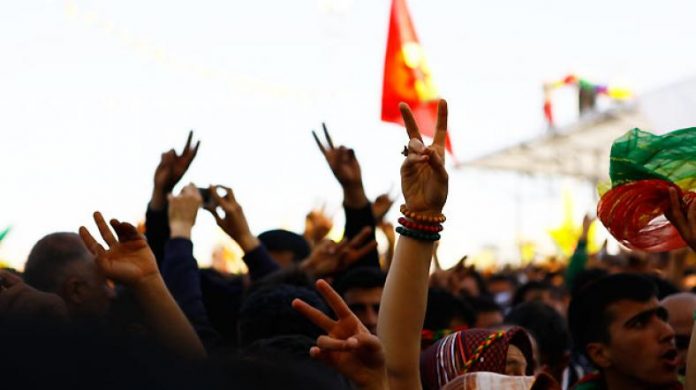Etyen Mahçupyan
Historical dilemmas such as the Kurdish question need politics to find a resolution. However, if no realm allowing politics is available, then what parties do in the name of politics cannot possibly create solutions. Moreover, the period before the Justice and Development Party (AK Party) came to power, corresponded with the times when the state and the PKK fell apart like two people who cannot understand each other's language. Within this period, the main target of the state was assimilation, while the PKK struggled mainly for independence. On one side, there was the nation state ideology reducing society to only one identity, and on the other side there was a minority group that developed administrative practices different from the central practices and expressed the voice of the majority in a specific geography for centuries. Also, both sides were pursuing an authoritarian mindset, normalizing conflicts, and neither was ready to meet halfway, to find alternatives that might lead to a resolution.
Consequently, political actors were on the scene but politics did not have a realm. From this perspective, the AK Party's main contribution has not been its focus on resolution or its efforts to persuade society to reconcile. In a historical context, it has created a realm of politics for the first time during the Republican period, which has been the party's main contribution. Previously, late President Turgut Özal exerted an invaluable effort, but they remained on the level of just seeking ways out of state practices and they were unfortunately left unfinished after his death. With the AK Party, the assimilation/independence contrast became a thing of the past. A new "see-recognize-talk" framework was born, rendering both marginal intentions non-functional.
This new dynamism enabled the emergence of three new and different alternatives for a resolution. The first one can be defined as "equal citizenship." According to this, Kurds and Turks are equal but the rights and liberties this equality incorporates remain limited to whatever extent Turks consent to. No matter what the general relationship form is between state and society, Kurds cannot lay a separate claim in this regard, but they do not lag behind Turks in any aspect. The second alternative can be named "self-government." The crucial point here is basing this on a decentralization guaranteed by constitution. Local governments are vested with the authority to determine various fields, and regardless of ethnic identity, whoever is elected governs the local administrational unit. As the local units' jurisdictions and relations with each center can differ, many sub-alternatives are available under this option. The third one is "regional administration." According to this, a predetermined geographical region is to be named as a "Kurdish administrational region," and this definition will remain stable no matter what kind of demographic changes take place. In local administrations, the elected ones do govern but a mid-level is insinuated between the central and the local, which is in the possession of the entire region. This approach can vary including federation and confederation options.
Those alternatives arose spontaneously as a result of the political activities of the agents with the emerging political realm. During the reconciliation process, the AK Party defended the first one and called it integration, while Abdullah Öcalan defended the second. The government left the second alternative to future political activities as long as the Kurds were to side with integration. Öcalan, on the other hand, consented to integration so long as this option was available. Currently, in the new period following the Syrian crisis, we know that the PKK has come to adopt the third alternative, while the government returned to the first one more strictly this time. The arguments of the parties are very distant from each other. But the political realm is still available, and it reminds us that the possible solution should be searched for in the second alternative, and negotiations can have a sense only within the context of this option.


